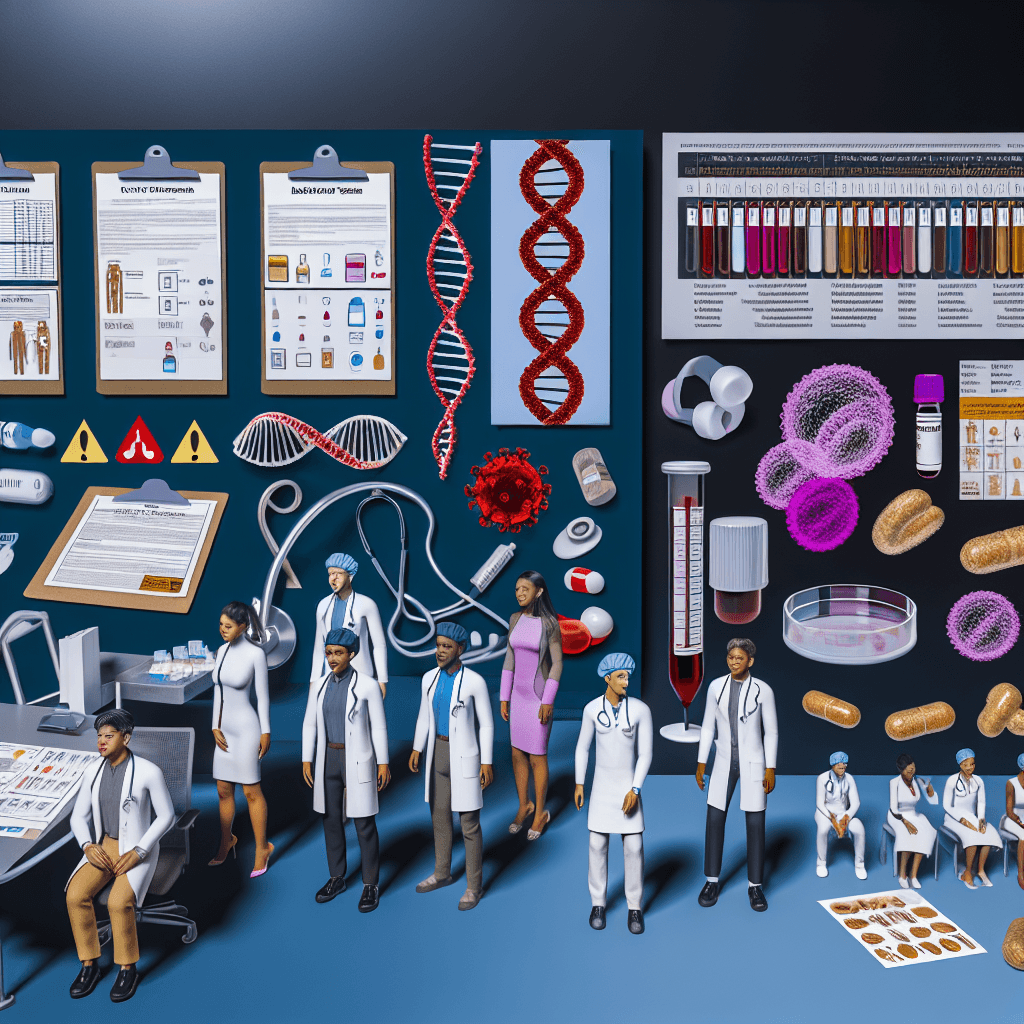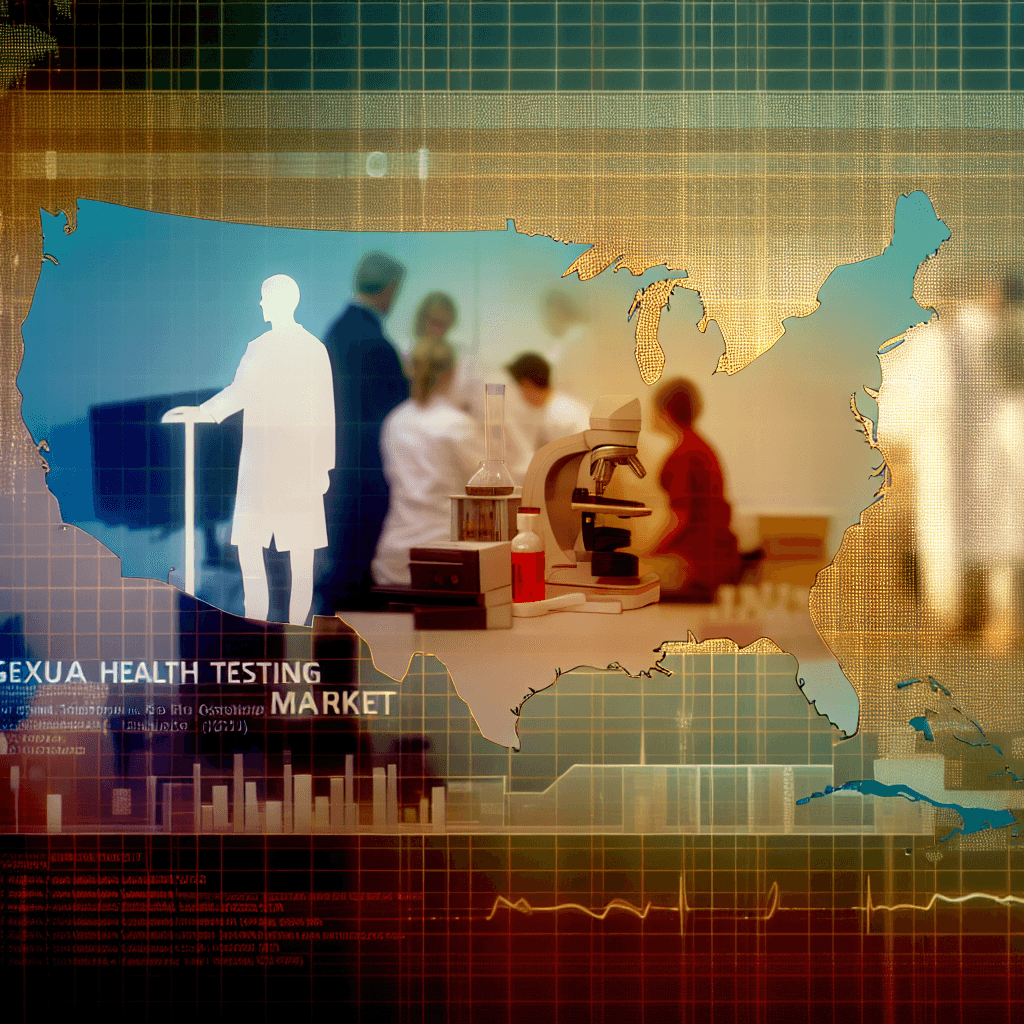Explore the U.S. Sexual Health Testing Market: trends, insights, and forecasts for informed healthcare decisions and improved public health outcomes.
U.S. Sexual Health Testing Market

Table of Contents
Exploring the U.S. Sexual Health Testing Market

The U.S. sexual health testing market is a critical component of public health initiatives, reflecting the country’s commitment to combating sexually transmitted infections (STIs) and enhancing sexual health awareness. This article delves into the various aspects of the market, including current trends, key players, and future projections. By examining statistical data, case studies, and expert opinions, we aim to provide a comprehensive overview of this vital healthcare sector.
Current Landscape of Sexual Health Testing in the U.S.
The United States has seen a significant evolution in sexual health testing over the past few decades. This shift is driven by technological advancements, changing social norms, and increased government funding. The Centers for Disease Control and Prevention (CDC) reports that millions of Americans are affected by STIs each year, which underscores the ongoing need for effective testing and treatment strategies.
- Technological Advancements: The introduction of more accurate and faster testing methods.
- Changing Social Norms: Greater openness in discussing sexual health issues.
- Increased Government Funding: More resources are being allocated to public health clinics and awareness campaigns.
Key Players in the Market
Several major companies and organizations play pivotal roles in the U.S. sexual health testing market. These include both commercial laboratories and non-profit entities that are dedicated to public health.
- Quest Diagnostics: Known for its wide range of diagnostic testing services, including STI tests.
- LabCorp: Another major player that offers comprehensive testing services across the United States.
- Planned Parenthood: Provides not only testing but also education and counseling on sexual health.
These organizations are complemented by numerous smaller clinics and online services that offer confidential and convenient testing options, catering to a diverse range of needs and preferences.
Impact of Technology on Sexual Health Testing
Technological innovations have revolutionized the way sexual health testing is conducted. From rapid tests to online platforms for test ordering and results delivery, technology has made sexual health testing more accessible and less stigmatizing.
- Rapid Testing Kits: These allow for quick results, often within the same day, and can be used in a variety of settings, including at home.
- Online Platforms: Companies like EverlyWell and LetsGetChecked offer mail-in testing kits, which provide users with the convenience of home testing with the support of professional labs.
These technological advancements not only improve the efficiency of testing but also help in reaching a broader audience, including populations that might otherwise avoid traditional testing methods due to stigma or accessibility issues.
Challenges Facing the U.S. Sexual Health Testing Market
Despite significant progress, the sexual health testing market in the U.S. faces several challenges that hinder its effectiveness and accessibility.
- Stigma and Privacy Concerns: Many individuals avoid testing due to fear of judgment or breach of privacy.
- Unequal Access: Disparities in access to sexual health services continue to exist, particularly for marginalized communities.
- Funding Limitations: Although there has been an increase in funding, it remains insufficient to meet all the needs, especially in rural or underserved areas.
Addressing these challenges is crucial for the continued improvement and expansion of sexual health services across the country.
Future Trends and Projections
Looking ahead, the U.S. sexual health testing market is poised for significant changes, driven by ongoing research, policy shifts, and societal attitudes towards sexual health.
- Increased Normalization and Awareness: As sexual health becomes less stigmatized, more individuals are likely to seek testing.
- Integration of AI and Machine Learning: These technologies could lead to more personalized and efficient testing processes.
- Expansion of Telehealth Services: Continued growth in telehealth could further transform sexual health testing by making it more accessible and less costly.
These trends suggest a dynamic future for the sexual health testing market, with enhanced capabilities to meet the needs of a diverse population.
Conclusion
The U.S. sexual health testing market is a vital aspect of national health initiatives, playing a crucial role in preventing and managing STIs. Through the integration of advanced technologies, the expansion of accessible testing options, and the reduction of stigma, the market is evolving to better serve the public. However, challenges such as privacy concerns, access disparities, and funding limitations must be addressed to fully realize the potential of these advancements. Looking forward, the market is set to undergo further transformations, promising improved outcomes for sexual health across the nation.
In conclusion, while there are hurdles to overcome, the future of the U.S. sexual health testing market looks promising, with potential for significant improvements in public health and well-being.








